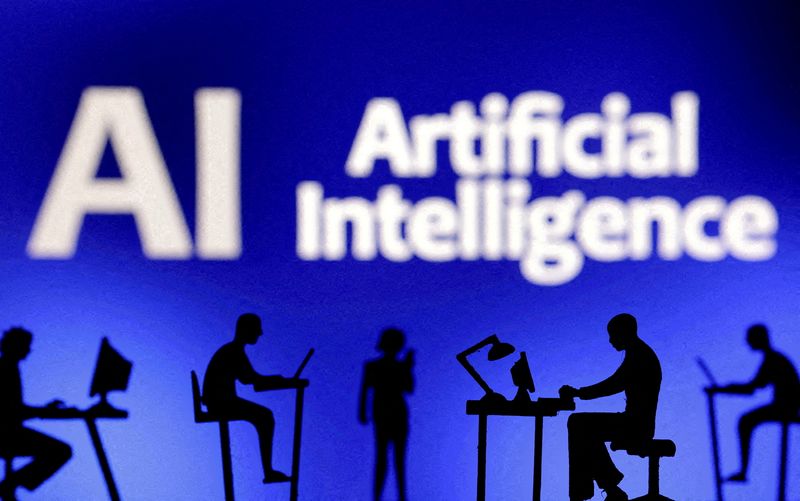Aspire Biopharma faces potential Nasdaq delisting after compliance shortfall
Investing.com - A boom in spending on artificial intelligence by mega-cap technology companies is having a measurable impact on the U.S. economy, but this has been "more muted than often cited," analysts at BCA Research have argued.
Big-name firms such as Facebook-owner Meta, e-commerce giant Amazon and software group Microsoft have rolled out plans for heavy expenditures on AI models and the infrastructure powering them, as part of a bid to harness and monetize the nascent technology.
Capital expenditures by these so-called hyperscalers has continued to climb and is on the verge of exceeding those of U.S. broadband providers during the dotcom boom more than two decades ago, when spending as a share of gross domestic product reached 1.1% in 2000, BCA said.
FactSet estimates show that spending by the big five hyperscalers -- Meta, Amazon, and Microsoft as well as Alphabet-owned search titan Google and cloud services provider Oracle -- is tipped to rise to more than $400 billion over the next 12 months, from $300 billion in the second quarter. Some $5.2 trillion will also be poured into data centers globally between this year and 2030 to address soaring AI demand alone, according to McKinsey, a consultancy.
But the BCA analysts flagged that the actual impact of AI capex on the U.S. economy is "probably smaller than the hyperscalers’ reported numbers imply," partly because much of the capital equipment that these companies use is imported. They added that the imported share of U.S. tech capex may decline as the Trump administration pushes for more manufacturing to be reshored, although this "could be a long process."
For stock markets, AI is major theme for investors "even before it has shown up in the macroeconomic data," the analysts said, flagging that the combined market value of the biggest AI players stands of 33% of the benchmark S&P 500’s market capitalization.
As a result, equity markets could "move before the economy," as happened when stocks peaked and declined prior to a downturn in capex in 2000, they argued.
"We are tracking the free cash flows of the hyperscalers. While they remain very strong, they have begun to trend lower, as have overall cash holdings. A more significant deterioration in free cash flow could signal that the AI capex boom is coming to an end," the BCA analysts wrote.
